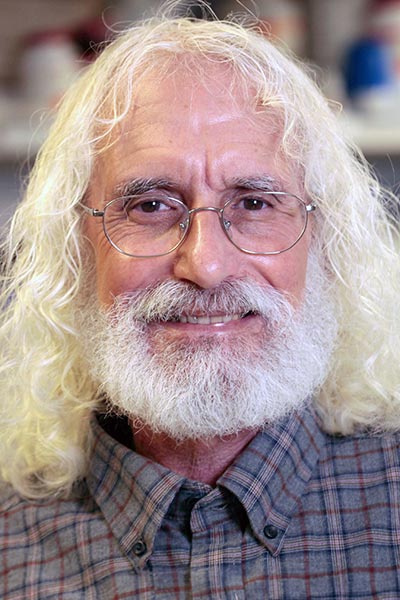Data science, artificial intelligence, and technology among hot topics within program
//
Estimated Read Time:
Computational biology, artificial intelligence, and data science are exciting topics in the limelight at the American Association for Cancer Research Annual Meeting 2024, set for April 5-10 in San Diego, California.

AACR President Philip D. Greenberg, MD, FAACR, said a sincere effort has been made to integrate experts in these areas into the meeting because they provide powerful ways to move the field of cancer research forward.
“Most of us have not been trained in those areas,” said Greenberg, the Rona Jaffe Foundation Endowed Chair and Professor and Head of the Program in Immunology at the Fred Hutchinson Cancer Research Center. “We are dependent on our colleagues to help us use those areas of science to understand the science that we do know something about.”
That collaboration is what brings cancer scientists from all backgrounds and areas of research to the Annual Meeting, Greenberg said. Collaboration leads to better understanding and, as a result, better research and ultimately better outcomes for patients.
Each year, the AACR Annual Meeting features “Advances In” tracks that focus on various areas of cancer research. Among the new tracks are Advances in Technologies, which include sessions on machine learning and computational oncology.
The programming leadership for this year’s Annual Meeting reflects the emphasis on these topics. For the first time, the Annual Meeting has two Program Committee Chairs: Christina Curtis, PhD, MSc, RZ Cao Professor of Medicine, Genetics, and Biomedical Data Science at Stanford University; and Keith T. Flaherty, MD, FAACR, Director of Clinical Research at the Massachusetts General Hospital Cancer Center.
Curtis has expertise in computational biology and artificial intelligence, and Flaherty has expertise in new drug development, design, and testing. “I thought they would complement each other very well, and it’s been better than I ever expected,” Greenberg said. “It’s been a wonderful pairing for program development.”
A topic that will receive attention at this year’s meeting is hematologic malignancies, which is one of the new “Advances In” tracks. Sessions include discussions on lymphoma, precursors to hematologic malignancies, and relapses after bone marrow transplant. One session will cover mechanisms of resistance to immunotherapeutic approaches, which addresses the obstacles to immunotherapy as well as insights into how to overcome them.
Another hot topic at the Annual Meeting 2024 is pediatric oncology, as it has been an instructive area of cancer research from a basic science standpoint.
“We can learn a lot from studying how a tumor with very few [genomic] changes, such as those in pediatric cancer, becomes a cancer that hasn’t required all these other changes to occur,” Greenberg said.
Greenberg is championing a special session on communicating science to the public.
“This is a really critical issue for us right now,” he said. “It comes from the response to the COVID pandemic, which was a really painful eye opener for most of us in science.” The AACR has plans to potentially follow up with webinars and other educational opportunities for members.
The Annual Meeting will also put chemistry and its impact in the spotlight in 2024. It will be a topic of presentations in the Opening Plenary on Sunday, April 7, and the chemistry track includes methods workshops, “Advances In” sessions, the New Drugs on the Horizon series, and Educational Sessions such as one on synthetic lethality in cancer therapy.
A growing number of people engaged in cancer science and survivorship are hungry to interact, network, and learn. Greenberg said that while that is a tribute to the Annual Meeting, it’s also a responsibility.
“I’m really proud of the program that we’ve put together,” he said. “The real responsibility of the meeting is to make sure that we do enough to satisfy a diverse audience with very different skills. And I think we’ve done that.”
ANNUAL MEETING TOPIC TRACKS
The AACR Annual Meeting 2024 program is organized into 25 topic tracks. Check the online planner for the most up-to-date information on session topics, dates, and times.
- AACR Project GENIE
- Bioinformatics, Computational Biology, Systems Biology, Convergent Science
- Cancer Disparities
- Cancer Evolution
- Career Development
- Chemistry
- Clinical Research
- Clinical Trials
- Data Science
- Drug Development
- Endocrinology
- Entrepreneurship
- Experimental and Molecular Therapeutics
- Global Health
- Hematologic Malignancies
- Immunology
- Molecular/Cellular Biology and Genetics
- Pediatric Cancer
- Population Sciences
- Prevention, Early Detection, and Interception
- Radiation Science and Medicine
- Regulatory Science and Policy
- Survivorship
- Tumor Biology
- Tumor Microenvironment
Seven “Advances In” tracks pull together even more related sessions from the overall program.




